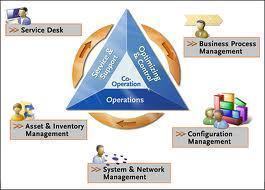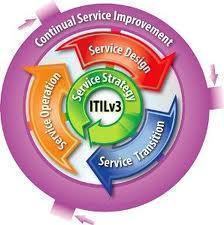Service management, also called IT service management, is the discipline used in industries that provide services or a combination of goods and services. While widely used in the IT industry, specifically the ICT (information and Communication Technology) sector, service management can be integrated into many other industries.
Service management is usually used in conjunction with operations support systems. Systems that use service management include order management, inventory management, activation, maintenance, performance diagnostics, and several other types of support systems to make sure that these systems are running proficiently and error free.
Service Management is progressing to the pinnacle as a competent business approach. To preserve development and customer loyalty in a cutthroat business environment, top businesses are now identifying the necessity to enhance Service and Service Enabled competency.
Components of Service Management
There are several service management components. Service management usually incorporates automated systems along with skilled labor. Service management also usually provides service development. For instance, it is extremely important to first simplify then streamline services that are managed (i.e. delivery, support) into a simple workflow. However, managing workflow is not enough, another component is the ability to govern automated controls from a centralized location and make sure that data security is in effect at all times. Hence, service management becomes an amalgamation of the following components: Service plan and offerings, Market Research plan, Service Portfolio Management, Stock Management, Execution Process & Logistics, Service Contract & Claims Administration, Field Service Administration, Billing, and Customer Management.
Service Management is usually used with other types of management systems including Total Quality Management (TQM), Six Sigma, CMMI (Capability Maturing Model and Integration), and Business Process Management. It can be used with small scale companies or used with extremely large corporations. The service management discipline has been around since the early 1970s and was originally part of the Operations Management discipline.
Service Management Providers
Today, many resources and service providers that help small and large businesses incorporate service management principles into their organization. Some of the vendors that provide service management include: iSYS, IBM Service Management, Novell ZENworks, Oracle Enterprise Manager, Altrius Management Suite, Accenture, CA Unicenter, HP OpenView, Infor ERPLN Service Management, LANDesk Management Suite, Level Platforms, Mansystems, Microsoft Systems Management Server, Nagios, Objective Systems Integrators, Raritan, TeamQuest Performance Software, USU Software, Zenoss, Zyrion.
While the above service providers help organizations manage large groups of computers (automated systems), there are a few vendors that provide management services as well, most notably Econ Global Services.
Service Management Advantages
Business houses or companies implement service management to gain many advantages in productivity and competency.
- Elevated service expenditure can be condensed by incorporating the service and products supply chain.
- Stock levels can be minimized, reducing total stock management costs.
- Customer service value can be enhanced.
- Decrease outdated expenses of stock by enhanced forecasting.
- Enhance customer satisfaction level.




Follow Us!